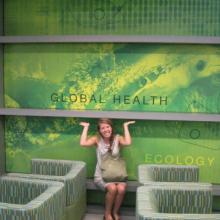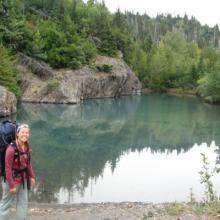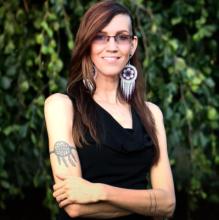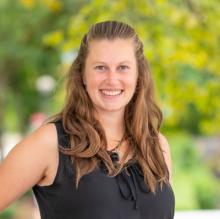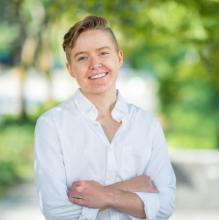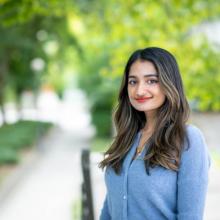My research interests have always been rooted in experiences and relationships I have enjoyed outside academia. To me, being a public scholar means honouring those lived experiences and relationships in the work I do, and how I do it. This includes sharing my strengths as a scholar in meaningful and impactful ways, while also recognizing and learning from the strengths of collaborators.
Research Description
Ensuring people have access to enough safe, nutritious, and culturally important food remains a top priority globally and locally. First Nations have repeatedly indicated the importance of foods harvested from their lands and waters, and the diversity of factors affecting their abilities to access them, including government policies and ecological shifts. Through my PhD research I am working to demonstrate the extent to which Crown-determined fisheries management strategies, in particular, affect First Nations’ access to critically important foods. Through this work I aim to support and celebrate reassertion of First Nations’ fisheries governance and Indigenous food sovereignty by engaging with theories of food justice to cast my research gaze upon the structural barriers to accessing healthy, nourishing foods that are entrenched in colonial-through-to-federal fisheries governance. I also consider more critical understandings of food justice, to ask how Crown-imposed fisheries governance might be limiting the opportunities people have to resist and disrupt power structures. This research also involves questioning potential biases in predominant approaches to assessing and promoting food access, and how those biases can contribute to the under scrutiny of government regulations. I have had the privilege of working with the Nuxalk First Nation on projects relevant to these questions, and hope to continue doing so through the work I will be pursuing with support from the PSI. That work aims to develop an accessible tool communities and households can use to build self-determined food baskets –which are tools commonly used in assessing food access, but tend to be limited to market-based foods.
What does being a Public Scholar mean to you?
My research interests have always been rooted in experiences and relationships I have enjoyed outside academia. To me, being a public scholar means honouring those lived experiences and relationships in the work I do, and how I do it. This includes sharing my strengths as a scholar in meaningful and impactful ways, while also recognizing and learning from the strengths of collaborators. In the contexts I work in, scholarship is but one piece of collective responses. As a public scholar, I am committed to working with communities and collaborators to find ways that my scholarship, skills, and resources can complement and bolster the work they are already doing. As a public scholar I see myself acting in service to the communities I work with.
In what ways do you think the PhD experience can be re-imagined with the Public Scholars Initiative?
With the PSI, I am looking to reimagine the role of methods within my PhD experience. So often methods can be seen as the necessary tools to get us from questions to findings, in which the findings are our scholarly products and contributions. Instead, in collaborative work, I have found my contributions often take the form of identifying, or when necessary developing, rigorous methods that are up to the challenges communities are responding to. I am looking forward to the support of the PSI to share novel methods in formats that are accessible to the public. I see this as a step towards shifting the role of academic researchers who work in collaboration with communities towards a, potentially, less extractive model.
How do you envision connecting your PhD work with broader career possibilities?
I come to the proposed work with a deep commitment to finding ways to make the theories and methods within food studies accessible to communities working to promote food access and govern their own food systems. There is too often a gap between the methods used within academia, the data generated, and information that can be used by communities and practitioners. Through my PhD research, and particularly with the support of the PSI, I aim to bridge that gap by co-developing community-grounded and accessible tools rooted in rigorous scholarship. Following graduation, I hope to continue to find ways to occupy this gap, putting academic methodologies to work for communities. The PSI-supported work will provide an incredible opportunity to learn how methods can be moved from academic spheres into the hands of communities as viable means for furthering the communities’ goals.
How does your research engage with the larger community and social partners?
Partners and collaborators outside of academia have been central in shaping and guiding my research goals. I aim for the path my research takes to be responsive to the priorities of the communities I am working with. The past few years have been challenging with limits to being with collaborators in person and in place, and I am thankful for the time and energy they put in to continuing conversations and relationships with me. I am also thankful for the new conversations and relationships that were sparked across physical distance. Through the work I am pursuing with support from the PSI, I hope to be working closely with non-academic collaborators to ensure the food basket tool we develop meets their needs and is easy to use.
Why did you decide to pursue a graduate degree?
I studied global health as an undergraduate (Georgetown University, School of Nursing and Health Studies) and earned a MSs in global health and environment (UC Berkeley, School of Public Health), both of which introduced me to the process of research and the importance of rigorous methodologies, but also left me with more questions. Particularly, I found some disconnect between the ways that fishing and fishing livelihoods were considered within the field of public health and more broadly within academia and my experiences growing up in a community and family where fishing is central to our way of life. Additionally, I felt that the disconnects were not necessarily neutral or random, they perpetuated certain ways of thinking and valued certain ways of being. I decided to pursue a graduate degree to occupy this space between the academic and applied and to dig into questions that emerged from that position.
Why did you choose to come to British Columbia and study at UBC?
I decided to study at UBC, because of the school's strength across the fields of natural resources, coastal ecology, and public health. I am confident that I will find at UBC the challenge and support I need to elevate my research and abilities as a scholar.
What is it specifically, that your program offers, that attracted you?
The Institute for Resources, Environment and Sustainability's commitment to encouraging and strengthening interdisciplinary research was especially important to me, as was the program's support for applying research and engaging in policy conversations.
What do you like to do for fun or relaxation?
I love being outside: trail running, hiking, and camping are how I most often enjoy nature, with some kayaking, gardening, swimming, and skiing thrown in when I can. I also love to play and watch team sports, especially soccer, and I really enjoy cooking and baking.
Do you have any tips for students from your home country coming to Canada / to UBC Grad School?
As a new graduate student myself, I do not have much advice. If you are in the process of applying, I would suggest embracing it, as much as possible, as an opportunity to sit with your interests and passions a bit.

